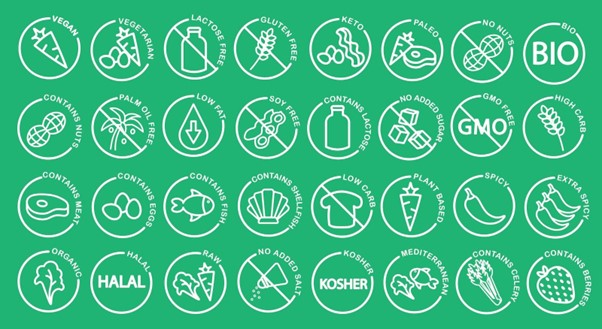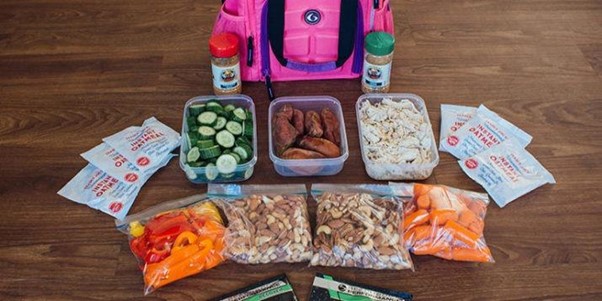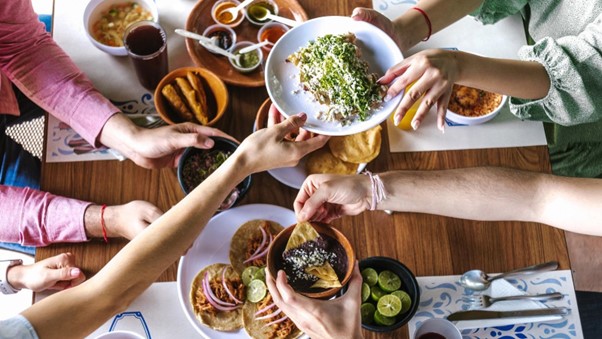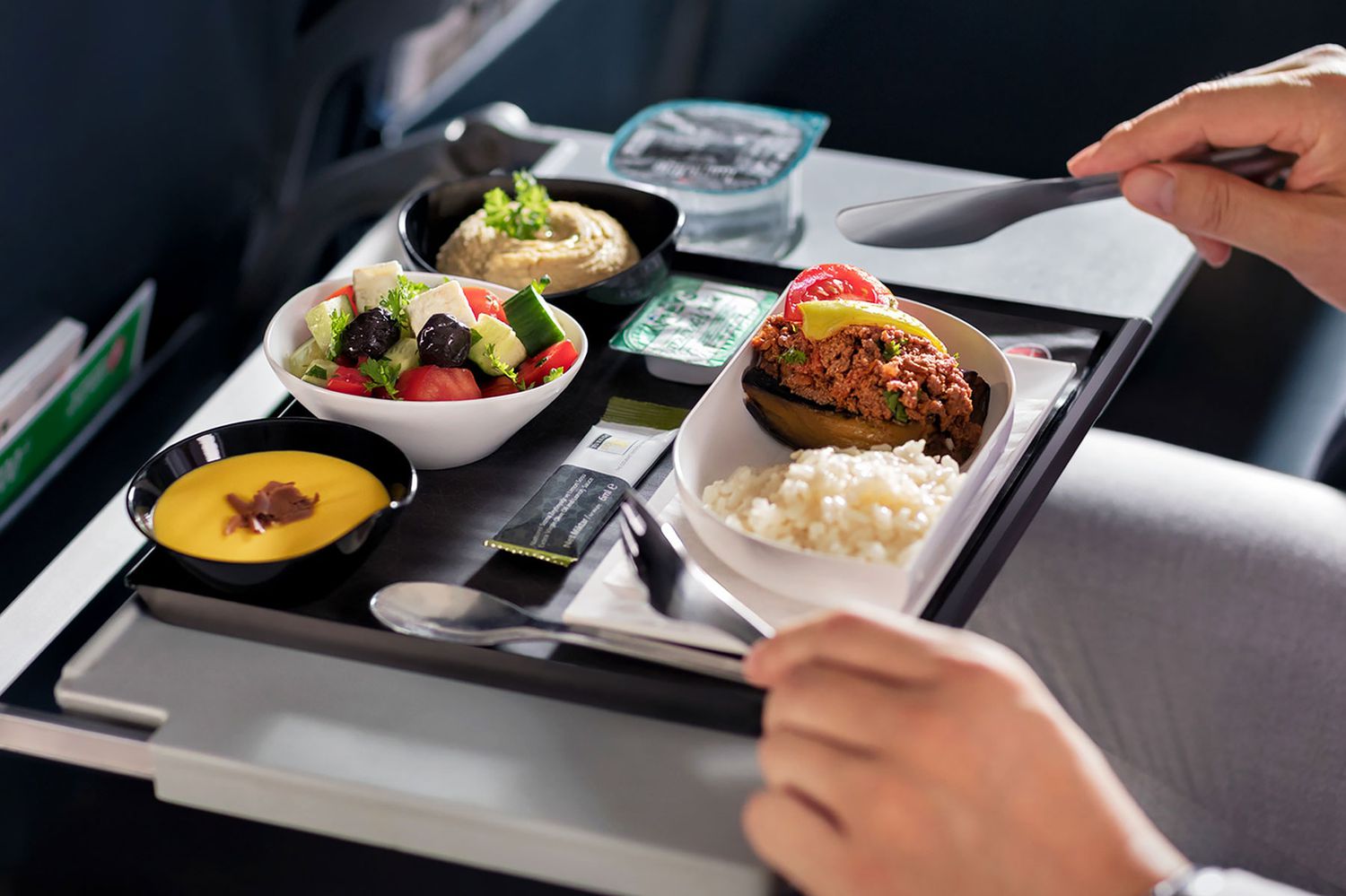Traveling with Dietary Restrictions: Tips for Staying Healthy on Vacation

We understand the importance of maintaining dietary restrictions while
traveling and recognize the challenges faced by individuals with specific
dietary needs during vacations. That's why we've created this article to
provide you with essential tips for staying healthy on vacation with dietary
restrictions.
With our expert advice, you can navigate
unfamiliar destinations, enjoy local cuisine, and make the most of your travel
experiences while prioritizing your health. Get ready to embark on a journey
filled with delicious possibilities and unforgettable adventures!
Understanding Dietary Restrictions

Different Types of Dietary Restrictions
When it comes to dietary restrictions, there are
various types that individuals may follow to manage their health and
well-being. Some common examples include gluten-free, lactose intolerant, vegetarian, and more (Smith, 2018). Each type
of restriction has its specific dietary limitations and considerations, making
it crucial for individuals to understand their unique requirements.
Reasons behind Adopting Dietary Restrictions
People adopt dietary restrictions for various reasons, including medical conditions, allergies, ethical beliefs, and personal preferences. For instance, individuals with celiac disease adopt a strict gluten-free diet to avoid triggering harmful immune responses (Johnson & Brown, 2019). Understanding the underlying reasons behind adopting specific dietary restrictions is essential to appreciate the significance of adhering to them.
Health Benefits of Adhering to Dietary Restrictions
Adhering to dietary restrictions can offer
numerous health benefits. For individuals with lactose intolerance, eliminating
or reducing dairy consumption can alleviate digestive discomfort and improve
overall gut health (Garcia & Martinez, 2020).
Similarly,
adhering to a vegetarian diet has been associated with lower risks of heart
disease, high blood pressure, and obesity (Williams et al., 2017). By following
their dietary restrictions diligently, individuals can optimize their
well-being and maintain a healthy lifestyle.
Preparing for Your Trip

As you prepare
for your exciting journey, it's crucial to consider how you can maintain your
dietary restrictions while away from home. By researching your destination's
food options and packing essential items, you can ensure a smooth and enjoyable
travel experience while staying true to your dietary needs.
Researching Your Destination's Food Options
Before setting
off on your trip, it's important to research the local cuisine and the
ingredients commonly used in your destination. This knowledge will empower you
to make informed choices and navigate menus more effectively.
1.
Checking Local Cuisine and Ingredients Commonly Used
Take the time to
familiarize yourself with the local cuisine and the ingredients that are
commonly used in your destination. This will give you a better understanding of
the dishes you can enjoy while adhering to your dietary restrictions.
2.
Locating Restaurants or Grocery Stores that Accommodate Dietary Needs
When researching
your destination, make an effort to find restaurants or grocery stores that can
accommodate your specific dietary needs. Look for establishments that offer
gluten-free, vegan, or other specialized menus. This way, you can ensure you have
viable options for dining out or purchasing food items during your trip.
Packing Essential Items
To support your
dietary restrictions while traveling, it's important to pack essential items
that will keep you nourished and prepared throughout your journey.
1.
Bringing Non-Perishable Snacks
Pack a variety
of non-perishable snacks that align with your dietary restrictions. These
snacks will come in handy during long flights, bus rides, or when you're
exploring destinations where finding suitable food might be challenging. Opt
for options such as granola bars, dried fruits, nuts, or seeds to keep you
energized between meals.
2.
Carrying Necessary Medications or Supplements
If you require
specific medications or dietary supplements, be sure to pack them securely.
It's important to have an ample supply to last you throughout your trip, as
accessing certain medications or supplements may be difficult in some
locations.
3.
Packing Specialized Cooking Equipment
For individuals
with specific dietary needs, packing specialized cooking equipment can be
helpful, especially if you plan on preparing some of your meals. Examples
include portable blenders, mini rice cookers, or collapsible containers.
Consider your specific dietary requirements and assess whether packing such
equipment will enhance your ability to adhere to your restrictions.
Remember, by
conducting thorough research and packing the necessary items, you can
proactively manage your dietary restrictions while traveling. Stay tuned for
the next section where we'll explore effective strategies for communicating
your dietary needs during your trip.
Communicating Your Dietary
Restrictions

Effective communication is crucial when it comes to ensuring that your dietary restrictions are understood and accommodated while traveling. By informing your travel companions, communicating with relevant service providers in advance, and learning key phrases in the local language, you can navigate the challenges of dining with dietary restrictions more smoothly.
Informing Your Travel Companions
Start by having an open and honest conversation with your travel companions about your dietary restrictions. Explain your specific needs and any concerns you may have. By sharing this information, they can better support you during your trip, and it will also help them understand the importance of finding suitable dining options that cater to your dietary requirements.
Communicating with Airlines, Hotels, and Restaurants
in Advance
Before your
trip, take the initiative to contact airlines, hotels, and restaurants to
inform them about your dietary restrictions. Many airlines offer special meal
options for passengers with dietary needs, so make sure to request these meals
when booking your flight. Similarly, inform your hotel in advance about your
dietary restrictions, as they may be able to provide you with suitable options
or make necessary arrangements.
When making restaurant reservations, don't hesitate to inquire about their ability to accommodate your dietary requirements. By communicating your needs in advance, you allow establishments to prepare and provide you with a more enjoyable dining experience.
Learning Key Phrases in the Local Language to Explain
Your Dietary Restrictions
Learning key
phrases in the local language that relates to your dietary restrictions can be
immensely helpful. This will enable you to communicate your needs effectively
while dining out or purchasing food items. Simple phrases such as "I am
gluten intolerant" or "I am vegetarian" can make a significant
difference in ensuring that your dietary restrictions are understood and
respected by the locals.
By taking these proactive steps to communicate your dietary restrictions, you can set the stage for a smoother and more enjoyable dining experience while traveling. Stay tuned for the next section where we'll explore tips for eating out and exploring local cuisine with your dietary restrictions in mind.
Eating Out and Exploring
Local Cuisine

One of the
highlights of traveling is immersing yourself in the local cuisine. Even with
dietary restrictions, you can still savor the flavors and experience the
culinary delights of your destination. By researching local dishes, asking for
ingredient details, seeking out specialty restaurants, and choosing naturally
suitable options, you can enjoy a memorable dining experience while staying
true to your dietary needs.
Researching Local Dishes that Align with Your Dietary
Restrictions
Before venturing out to eat, research local dishes that are known to align with your dietary restrictions. Look for traditional dishes that naturally fit within your dietary requirements. By having a list of suitable options, you can confidently explore local eateries and make informed choices.
Asking for Ingredient Details and Food Preparation
Methods at Restaurants
When dining out, don't hesitate to ask your server for detailed information about the ingredients used in a particular dish and how it is prepared. Communicate your dietary restrictions clearly and politely. By doing so, you can ensure that the meal meets your requirements and avoid any potential cross-contamination or hidden ingredients that may not be suitable for you.
Seeking Out Specialty Restaurants that Cater to
Specific Dietary Needs
In many destinations, you can find specialty restaurants that specifically cater to individuals with dietary restrictions. These establishments often have dedicated menus or options that are tailored to different dietary needs, such as gluten-free, vegan, or allergen-friendly choices. Research and seek out these specialty restaurants to enjoy a wider range of options that cater to your specific requirements.
Opting for Naturally Gluten-Free or Vegetarian Dishes
An effective
strategy is to opt for dishes that are naturally gluten-free or vegetarian.
Many cuisines offer a variety of naturally suitable options that don't require
modifications. For example, Mediterranean cuisine often includes dishes like
salads, grilled vegetables, and legume-based dishes that can be enjoyed by
individuals with different dietary restrictions.
By following these tips, you can confidently explore the local cuisine, taste authentic flavors, and create unforgettable dining experiences while adhering to your dietary restrictions. Stay tuned for the next section where we'll discuss strategies for staying healthy and nourished during your travels.
Planning for Airport and
Airplane Meals

When it comes to traveling by air, planning your meals can be crucial, especially if you have dietary restrictions. By requesting special meals, packing your food, and being cautious about cross-contamination during in-flight meals, you can ensure a more enjoyable and hassle-free dining experience.
Requesting Special Meals in Advance
To cater to various dietary needs, airlines typically offer special meal options. Before your flight, make sure to request a special meal that aligns with your dietary requirements. Options may include gluten-free, vegetarian, vegan, or allergen-free meals. By making this request in advance, you can rest assured that your dietary needs will be taken into consideration, allowing you to enjoy a more satisfying in-flight meal.
Packing Your Meal or Snacks for the Flight
If you're concerned about the availability or suitability of in-flight meals, consider packing your meal or snacks for the journey. Choose items that are easy to transport and meet your dietary restrictions. Non-perishable options such as granola bars, fresh fruits, nuts, or sandwiches can keep you nourished throughout the flight. However, be mindful of any restrictions on bringing certain food items through security.
Being Cautious about Cross-Contamination during
In-Flight Meals
When consuming
in-flight meals, it's important to be cautious about cross-contamination,
especially if you have severe allergies or sensitivities. Notify the flight
attendants about your dietary restrictions, so they can provide assistance and
ensure that your meal is handled appropriately. Additionally, double-check
labels and ingredients to avoid any potential allergens or ingredients that may
not align with your dietary needs.
By taking these measures to plan for airport and airplane meals, you can have more control over your dining options and maintain your dietary restrictions while traveling. Stay tuned for the next section, where we'll explore tips for staying healthy and active during your vacation.
Conclusion
In conclusion,
maintaining your dietary restrictions while traveling is essential for staying
healthy and enjoying a fulfilling vacation. By following the tips and
strategies outlined throughout this article, you can navigate the challenges
and embrace the opportunities of exploring new destinations while honoring your
dietary needs.
Planning,
communicating effectively, and staying positive are key to a successful
journey. By taking proactive steps, you can ensure that your dietary needs are
met, minimize any disruptions, and maximize your enjoyment of the local flavors
and cultural experiences.
Remember, having
dietary restrictions should never hinder your ability to explore the world and
create lasting memories. With proper preparation and a positive mindset, you
can embrace the adventure and savor every moment of your vacation while prioritizing
your health.
So, pack your
bags, embark on new culinary adventures, and empower yourself to experience the
wonders of travel while maintaining your health and honoring your dietary
restrictions. Bon voyage and happy, healthy travels!
References
Garcia, A., & Martinez, E. (2020). The effects of lactose intolerance on gastrointestinal function and health: A systematic review. Nutrients, 12(6), 1829.
Johnson, L., & Brown, R. (2019). Celiac disease: Understanding the gluten-free diet. Journal of the Academy of Nutrition and Dietetics, 119(11), 1796-1800.
Smith, J. (2018). Exploring dietary restrictions: A comprehensive overview. Journal of Food Science, 83(2), 348-355.
Williams, K., et al. (2017). Vegetarian diets and cardiovascular disease risk factors: A systematic review and meta-analysis. Nutrients, 9(8), 848.(2017). Vegetarian diets and cardiovascular disease risk factors: A systematic review and meta-analysis. Nutrients, 9(8), 848.




Leave a Comment